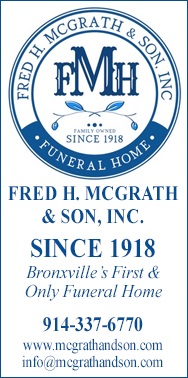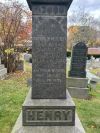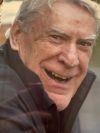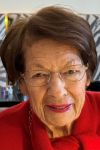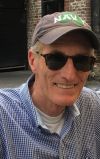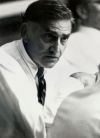Arthur Joseph Lennon, Jr., MD, Longtime Resident of Bronxville, Dies January 19, 2014

Feb. 5, 2014: Editor's note: The following is the text of the eulogy given by James and Jean Lennon at the funeral of their father, Arthur Joseph Lennon, Jr., MD.
I. Biographical
He was born November 30, 1935, at the Foundling Hospital on East 72nd Street at the tail end of the Great Depression. He grew up as an only child in upper Manhattan at Seaman Avenue and 208th. And like his father before him, he owes his early education to the Irish Christian Brothers, attending first Good Shepherd, followed by All Hallows, and then Fordham in the Bronx, where he majored in philosophy and religion.
To the disappointment of his mother, who had hoped he would follow in his father's footsteps in the law, he attended Columbia's Physicians & Surgeons, where he struggled with organic chemistry.
He was drafted into the army and on the way to Korea was diverted to Vietnam, where he served as a captain in a helicopter M.A.S.H. division. Ironically, Alan Alda was his classmate at Fordham.
He had met my mother before he left, when she was a first-year resident at St. Luke's, and he, a second-year who was supposed to show her the ropes. Somewhere in there is a funny story about a house call, a death certificate, and a young physician who preferred to go for a sail on Long Island Sound.
They were married in 1969, on the same weekend as the moon landing and Chappaquiddick. Shortly thereafter, they moved to Mount Vernon, where my sister was born a year later. They moved six blocks farther north to Bronxville, when I was born two years after that.
For many years, my dad maintained a private practice on Park Avenue, and even though I was only a young boy, I can remember how close he was with his patients--many of whom would send us Christmas gifts, although we had never met them. This was because he would spend considerable time with each patient at their visits--he would learn about their children and parents, hobbies, and concerns, for he knew that only through understanding the total person could he give them the best care.
But when the business changed in the 1980s and many doctors were forced to see more patients per day to cover overhead, my dad resisted. That wasn't the way he wanted to practice medicine. With regret, he closed his office. Fortunately, he was able to make the transition to full-time at Isabella Geriatric Center, where he had already been for some time. When he retired in 2009, he had been at Isabella for 42 years. And until his passing, he continued to serve on its board.
Those are the facts of his life, and while they do hint at the type of man he was, they do not speak to his character. Bear with me as I try to do that justice.
II. Anti-social/social
My dad was a complicated man, a contradiction in many ways. He was extremely private, yet also social. He was contemplative and methodical, yet also quick-witted. He was structured to the point of being rigid, yet also compassionate and surprisingly open-minded. He was worldly, but he never lived more than 15 miles from here.
By all appearances, he would dread social functions. When any invitation arrived, he would moan and gnash his teeth--"I'm not going to THAT." On the day of, he would stay in the basement or work in the yard in the grungiest clothes possible until the very last minute. But once there, wherever "there" was, he could hold court as the life of the party, and, more often than not, he was the last one to leave.
He secretly loved people. Who can forget his laugh--especially after he delivered a punch line of which he was particularly proud--he would grab your arm, pulling you to attention, his mouth and eyes open wide, and the funnier the joke, the less noise would come out.
And he was never at a loss for a quick and clever quip. As many at Isabella have told us, it was risky to sit next to him at a meeting, as his whispered comments would elicit laughter that garnered his neighbor scolding stares, while he sat silent and angelic.
III. Methodical/contemplative
My father could also be fiercely private, quiet, contemplative, and introverted. He would spend many of his weekends and evenings engrossed in a book. A lover of language, history, and the written word, he was a voracious reader, often juggling four or five of the latest hardback tomes that would make even a graduate student blanche. At 78, he kept a dictionary by his chair, never beyond learning something new. His grasp of US history and twentieth-century world history was astounding.
He was also a man of few words, and the more deeply he felt something, the more compactly he would construct his words. After receiving a particularly cryptic nugget, I could spend days, and occasionally years, unpacking his intent before I fully understood. About his faith, he said almost nothing. But I have never known him to miss Mass, and the intensity with which he prayed spoke for him.
But as complicated as he may have been, my dad was nothing if not consistent. And there were a few phrases that were among his favorites. Or at least he said them often. One of these was "measure twice, cut once." He often said this when working about the house, and there was nothing he wouldn't figure out or repair.
He was a do-it-yourselfer long before Home Depot and Lowes opened; we would spend many a Saturday visiting Cornell's True Value Hardware up Route 22. My father would disassemble the faulty doorknob or toilet, or what-have-you, with patience and care, making sure he understood which screw went where.
As I got older, the impatience of my youth and my eagerness to help would occasionally elicit a sharp "now wait just a minute" from him. But he was a patient teacher. And he was never stymied. He simply took his time. And like all good doctors, he first did no harm.
IV. Methodical/contemplative, cont.
This mindset transcended the practical--he did nothing without exhaustive forethought. He would contemplate a question or a conversation for days, if not weeks, before taking a position. Once he did, he held it firm, often justifying it with another of his favorite phrases: "Because it's the right thing to do." When I was a younger man, I bristled at this more often than I care to admit. Because I realize now that when it came to the more important questions in life, my dad was never wrong. Yes, Dad, I said it.
V. Wink instead of words
But the phrase that he shared with me that I find to be most descriptive of him comes from an Irish political ward boss from the nineteenth century. And it goes: "Never write if you can speak; never speak if you can nod; never nod if you can wink."
I struggle with this, for there were many times that with his few words I have been left wondering what he really meant, but my father lived this adage. And for the most important things, my dad even shied away from words. The things that were most dear to him--compassion, love, his faith--he would not taint these with the constraint of words. He would just wink.
And my dad had the most wonderful and expressive wink. The sparkle in his eye contained so much life, it could convey more depth than a thousand words could even approximate.
If you've ever received a wink from my dad, you know what I mean. Sometimes, he would use it to let you in on a conspirator's secret or a private joke. But at serious times, he would use it to let you know that he understood more than you could tell him. I will miss his wink more than anything.
VI. Closing
And as we say goodbye to my father today, I will close with one more of his sayings--one that he would say to Jean and me as he pulled the car up in front of the school each morning to drop us off: "Illegitimi non carborundum."

